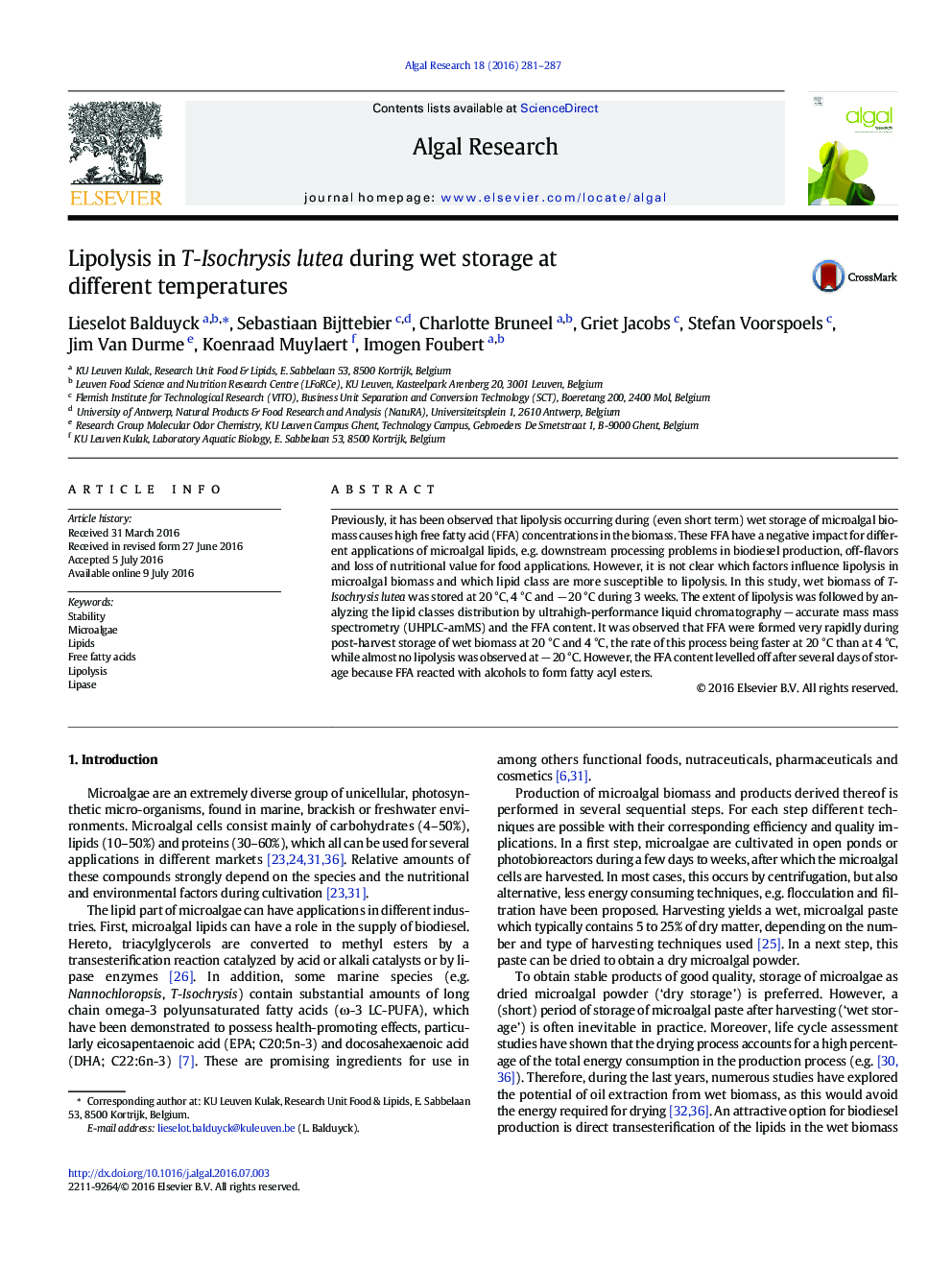| Article ID | Journal | Published Year | Pages | File Type |
|---|---|---|---|---|
| 8086721 | Algal Research | 2016 | 7 Pages |
Abstract
Previously, it has been observed that lipolysis occurring during (even short term) wet storage of microalgal biomass causes high free fatty acid (FFA) concentrations in the biomass. These FFA have a negative impact for different applications of microalgal lipids, e.g. downstream processing problems in biodiesel production, off-flavors and loss of nutritional value for food applications. However, it is not clear which factors influence lipolysis in microalgal biomass and which lipid class are more susceptible to lipolysis. In this study, wet biomass of T-Isochrysis lutea was stored at 20 °C, 4 °C and â 20 °C during 3 weeks. The extent of lipolysis was followed by analyzing the lipid classes distribution by ultrahigh-performance liquid chromatography â accurate mass mass spectrometry (UHPLC-amMS) and the FFA content. It was observed that FFA were formed very rapidly during post-harvest storage of wet biomass at 20 °C and 4 °C, the rate of this process being faster at 20 °C than at 4 °C, while almost no lipolysis was observed at â 20 °C. However, the FFA content levelled off after several days of storage because FFA reacted with alcohols to form fatty acyl esters.
Related Topics
Physical Sciences and Engineering
Energy
Renewable Energy, Sustainability and the Environment
Authors
Lieselot Balduyck, Sebastiaan Bijttebier, Charlotte Bruneel, Griet Jacobs, Stefan Voorspoels, Jim Van Durme, Koenraad Muylaert, Imogen Foubert,
